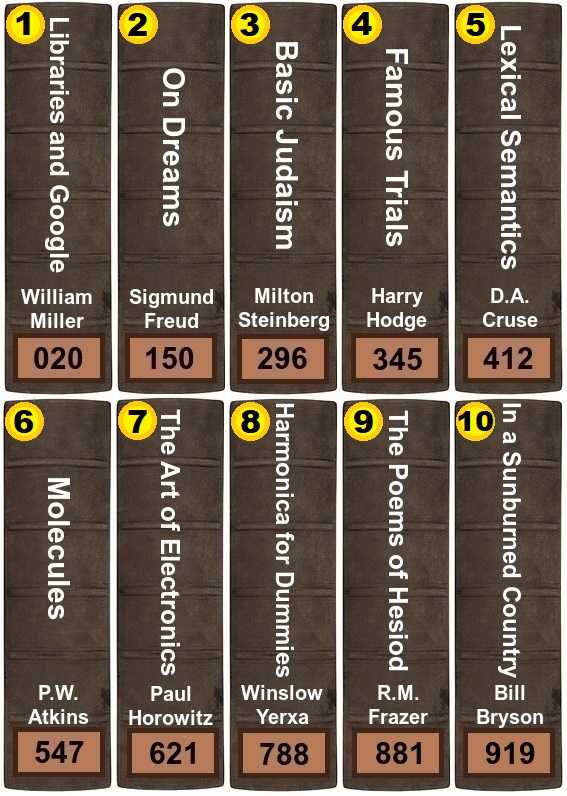
Classification by Dewey Trivia Quiz
Melvil Dewey developed his 'Dewey Decimal Classification' back in 1876, and it is still widely used in libraries around the world, allowing for a quick means to find (and replace) books on shelves within broad categories and specific subcategories.
A label quiz
by reedy.
Estimated time: 3 mins.
